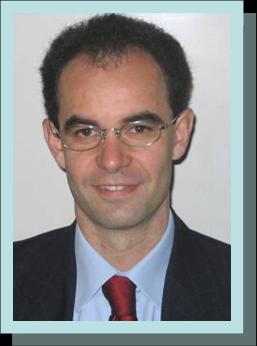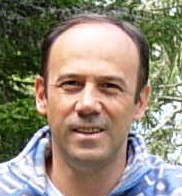Studying at the University of Verona
Here you can find information on the organisational aspects of the Programme, lecture timetables, learning activities and useful contact details for your time at the University, from enrolment to graduation.
Academic calendar
The academic calendar shows the deadlines and scheduled events that are relevant to students, teaching and technical-administrative staff of the University. Public holidays and University closures are also indicated. The academic year normally begins on 1 October each year and ends on 30 September of the following year.
Course calendar
The Academic Calendar sets out the degree programme lecture and exam timetables, as well as the relevant university closure dates..
| Period | From | To |
|---|---|---|
| First semester | Sep 26, 2011 | Dec 22, 2011 |
| Second semester | Feb 27, 2012 | May 25, 2012 |
| Session | From | To |
|---|---|---|
| Sessione invernale | Jan 9, 2012 | Feb 24, 2012 |
| Sessione saperi minimi logico-matematici (aprile) | Apr 1, 2012 | Apr 30, 2012 |
| Sessione estiva | May 28, 2012 | Jul 6, 2012 |
| Sessione autunnale | Aug 27, 2012 | Sep 21, 2012 |
Exam calendar
Exam dates and rounds are managed by the relevant Economics Teaching and Student Services Unit.
To view all the exam sessions available, please use the Exam dashboard on ESSE3.
If you forgot your login details or have problems logging in, please contact the relevant IT HelpDesk, or check the login details recovery web page.
Academic staff
 giovanna.caramia@univr.it
giovanna.caramia@univr.it
 manuela.cattelan@univr.it
manuela.cattelan@univr.it
 tamara.fioroni@univr.it
tamara.fioroni@univr.it

Lionzo Andrea
 andrea.lionzo@univr.it
andrea.lionzo@univr.it
 elisa.pagani@univr.it
elisa.pagani@univr.it
 susimaria.rancan@univr.it
susimaria.rancan@univr.it
 francesca.rossignoli@univr.it
francesca.rossignoli@univr.it
 0444 393941 (Ufficio Vicenza) 0458028261 (Ufficio Verona)
0444 393941 (Ufficio Vicenza) 0458028261 (Ufficio Verona)
 giuseppe.trabucchi@univr.it
giuseppe.trabucchi@univr.it
 marcella.veronesi@univr.it
marcella.veronesi@univr.it
Study Plan
The Study Plan includes all modules, teaching and learning activities that each student will need to undertake during their time at the University.
Please select your Study Plan based on your enrollment year.
1° Year
| Modules | Credits | TAF | SSD |
|---|
2° Year activated in the A.Y. 2012/2013
| Modules | Credits | TAF | SSD |
|---|
3° Year activated in the A.Y. 2013/2014
| Modules | Credits | TAF | SSD |
|---|
| Modules | Credits | TAF | SSD |
|---|
| Modules | Credits | TAF | SSD |
|---|
| Modules | Credits | TAF | SSD |
|---|
| Modules | Credits | TAF | SSD |
|---|
Legend | Type of training activity (TTA)
TAF (Type of Educational Activity) All courses and activities are classified into different types of educational activities, indicated by a letter.
Corporate finance (2013/2014)
Teaching code
4S00495
Teacher
Coordinator
Credits
9
Language
Italian
Scientific Disciplinary Sector (SSD)
SECS-P/09 - CORPORATE FINANCE
Period
primo semestre dal Sep 23, 2013 al Jan 10, 2014.
Location
VICENZA
Learning outcomes
In the first part the criteria underlying the capital budgeting decisions, the choices of financial structure and financial instruments in the short and medium term which can be used by industrial firms are analyzed.In the second part the course aims to provide a general overview of the elements making up the financial system, analyzing the structure and characteristics of financial markets, the business of credit intermediation and brokerage intermediation.
Examination Methods
Written exam
Type D and Type F activities
Modules not yet included
Career prospects
Module/Programme news
News for students
There you will find information, resources and services useful during your time at the University (Student’s exam record, your study plan on ESSE3, Distance Learning courses, university email account, office forms, administrative procedures, etc.). You can log into MyUnivr with your GIA login details: only in this way will you be able to receive notification of all the notices from your teachers and your secretariat via email and soon also via the Univr app.
Graduation
List of theses and work experience proposals
| theses proposals | Research area |
|---|---|
| Tesi di laurea - Il credit scoring | Statistics - Foundational and philosophical topics |






















